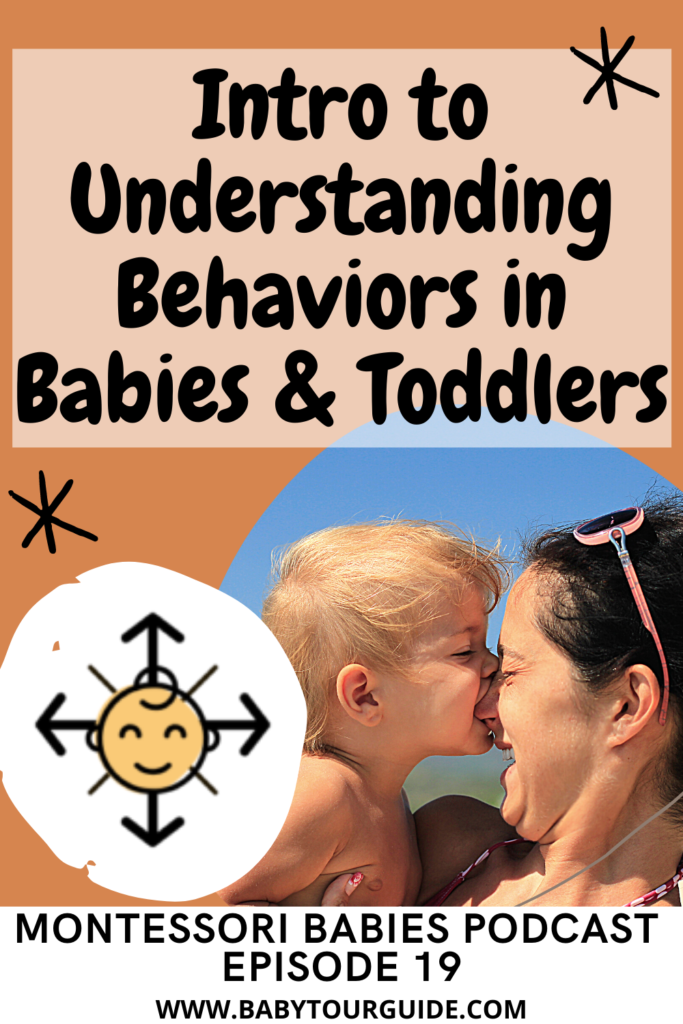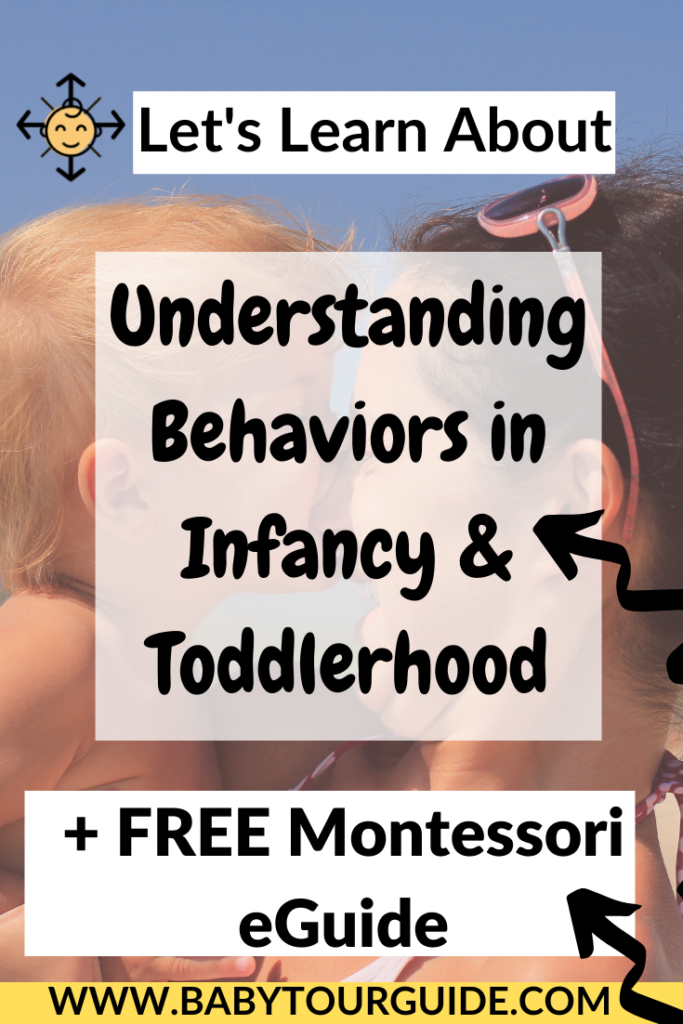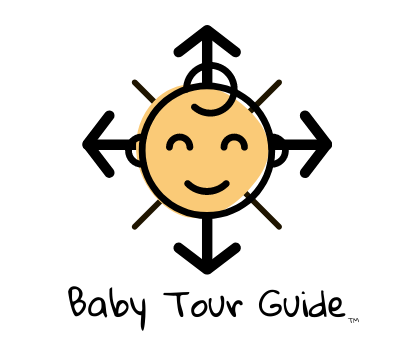Let’s begin to talk about behaviors in infancy and toddlerhood! To begin, it’s important to recognize that behavioral expression is unique to the child. And that said, it’s a huge topic that will definitely take more than one conversation to even begin to scratch the surface.
I want to start with a quote by the wonderful Janet Lansbury. She has a famous quote that I thought would just be perfect to start this episode. So she said…
“In my world, there are no bad kids, just impressionable, conflicted young people wrestling with emotions and impulses, trying to communicate their feelings and needs the only way they know how.”
Janet Lansbury
I thought this quote was just perfect because we can really apply this to infancy and to toddlerhood. And the way that we’re going to be able to understand where these behaviors come from is by understanding where they’re at in their development.

And so transitioning into this is topic…
So the behaviors themselves would be things like hitting, biting, hair, pulling, pushing, maybe intense vocal fluctuation, stuff like that. So when it comes to these behaviors, they look different at every level of development. But they can happen at every stage of development.
And so that’s why we’re going to start talking about it now, because when take a dive into what behaviors look like at different stages of development, we can recognize where our kids are. And then set clear, consistent and loving boundaries, while also understanding the meaning behind the behaviors.
Babies Are Little Scientists
So one potential reason that they may express some sort of behavior (like biting or pulling hair, pushing or throwing their Montessori materials) is that they’re little scientists. They are sensory seekers and they are explorers. And they do this exploration through their movement and through their interactions with their environment.
In babies, that exploration is a big reason why they would begin to express a behavior. They may do something like feel your hair with the fingers and then pull it. Or throw a material they’re working with. Or maybe they were mouthing your arm and then bit down. They’re sensory sneakers. Right?
So again, each child is very different and the situation is very different. But a lot of the time it’s a sensory exploration type of event. Right? And but I will tell you, one of my biggest observations and tips to handling these situations…
The way we respond to the behaviors really matters.
I was taught this over and over and over in my studies. But in the field, in the classroom, working with the babies, I will tell you that how we respond to that really matters.
And that’s kind of why I had mentioned earlier in this episode about setting those clear boundaries from day one and being consistent with them. So also, keep in mind that babies find a sense of security within the consistency of the limits set by their primary caregivers within their environment.
One of the reasons that it’s so important to understand how our reactions will affect the situation is because I have seen it where an infant pulled to their primary caregivers hair. They pulled their parents hair, they pulled their teachers hair, they pulled their nanny’s hair, and they got some sort of big reaction.
And if you think about it like this, what could be happening in their brain at that point is something similar to (for example) the Montessori kicking bell. So when they kick that bell and the bell makes a big, beautiful jingling noise, they learn that they can transform their environment. They kicked that bell and it made a beautiful noise.
So just keeping in mind is really helpful to understand that the reaction to our tiny baby doing something along those lines will also affect how it proceeds.
Temperament Also Affects Behavioral Expression
So one of my favorite resources is called Zero to Three, an amazing nonprofit dedicated to supporting babies, toddlers, parents, and caregivers everywhere. Anyway, they describe temperament as a child’s personal style. So the way that he or she experiences the world, like the way they handle emotions, regulate behaviors, approach new situations, and stuff like that.
Temperament definitely plays a role in behavioral expression. Some children get angered more easily and feel situations in a bigger way. So that’s also something to keep in mind. Behavioral expression can also be because they have a more sensitive temperament.
It can also very well be a combination of temperament, exploration, and environmental response.
Understanding Behaviors in Toddlerhood
Young toddlers may express behaviors because they’re feeling a really big emotion, a social situation occurred, or they’re exposed to certain types of frustration. It’s important to understand that the number one way that we learn about reactions is through modeling.
But at this age and stage of development, they start to feel big feelings and want to express but they don’t quite have the means to express what they’re feeling quite yet. And so they may go to an impulse before they have the words and understanding to express how they’re feeling.
It’s important to stay lovingly consistent so our sweet toddlers can find security within their situations. And we can support their development of expression by acknowledging how the situation may have made them feel (by offering the words), but also keeping consistent with the loving boundaries we set that keep them and others safe.

My Main Suggestion When Dealing with Behaviors in Infancy and Toddlerhood
So I want you to always keep in mind this point that I’m about to tell you. Especially as you approach behaviors, whether it’s your child, or your child is playing with somebody else’s child, or your child’s in a classroom setting.
Infants and young toddlers will never express a behavior with the intent to hurt the other child or parent or caregiver.
This type of intent does not develop until later in childhood. And this point is incredibly important to keep in mind as your child learns how they relate to the world and how the world relates to them. We want them to know that regardless of everything, they can positively relate to their world and the world can positively relate to them.
And we can approach these situations with a deeper understanding of where they are at in their development. And therefore offer our children opportunities to safely express and explore in a positive ways.
I hope this post was helpful! To dive deeper into this topic, take a listen to Episode 19 of our Montessori Babies Podcast linked below.
Xoxo,
Bianca, Your Baby Tour Guide


